VIRSEC launches battery fire awareness course
As lithium-ion batteries become prevalent, mitigating risks through informed crew training, like the VIRSEC ABS-approved course, is crucial…

Batteries on board are becoming more prevalent, and so are superyacht fires that can be tied to their misuse. VIRSEC’s ABS-approved online course aims to reduce these incidents by raising crew awareness.
VIRSEC, a UK-based e-learning company, launched a new online course this year titled “Lithium-Ion Battery Safety Awareness for Superyachts”. The course has been approved by the American Bureau of Shipping (ABS) and designed by industry-leading experts. VIRSEC asserts that “this course addresses the urgent need for specialised training in the handling, charging, storage and fire safety of lithium-ion batteries, an area of increasing concern in the superyacht industry.”
Education on safe battery operation is essential as the use of lithium-ion batteries in on-board applications becomes more widespread. This increase in lithium-ion batteries on board has been linked to the rising number of fires on superyachts, a concern recognised by VIRSEC and many others in the industry. These incidents can be catastrophic, leading to potential loss of life, severe property damage, and environmental hazards. Lithium-ion battery fires can result from improper charging, storage and handling, underscoring the need for comprehensive safety training.
Within this course, participants will expand their knowledge on topics related to the safe use and storage of lithium-ion batteries on board. Topics include the basic electrochemical processes of lithium-ion batteries, battery abuse conditions and hazardous battery defects, requirements for battery stowage compartments and battery charging stations, as well as understanding the challenges of responding to a thermal runaway event and the suitability of different fire suppression systems. The course tailors this information to the superyacht industry to meet “the unique needs of the superyacht community, including owners, managers, captains, staff and crew”.
Other regulatory bodies have recognised the risk of these fires and have added new elements to The International Safety Management (ISM) Code and the Standards of Training, Certification, & Watchkeeping (STCW) Convention. These now mandate that crew members be properly trained in the handling and safety procedures of hazardous materials, including lithium-ion batteries. This course is compliant with these ISM Code and STCW Convention regulations.
In June last year, the UK Maritime & Coastguard Agency released a marine guidance note on the safety and storage of small electric-powered craft on yachts. Amongst the recommendations was one suggesting charging operations be conducted only by competent persons, with the necessary skills and experience of the risks associated with lithium-ion battery charging. This course helps define the role and duties of this person when working with lithium-ion batteries, providing the knowledge required to safely conduct battery charging operations, identify hazardous or suspect batteries, and recognise the necessary steps to mitigate the risk until these batteries are removed from the yacht.
Having a more educated crew should work towards creating safer battery use, charging and storage on board, and so decrease the number of these incidents. A different subsequent benefit of having more safety-trained crew on board, as highlighted by VIRSEC, is that reducing the risk of these incidents on board could also lead to insurance underwriters looking favourably on vessels with crew who have undergone certified safety training, which could lead to reduced premiums.
It’s not only lithium-ion batteries which will require crew to be better trained in the safe handling and operation of them; many other alternative fuels and technologies also used in decarbonisation efforts will need additional safety measures to avoid the unique hazards that are associated with their implementation and operation onboard. It’s been noted by those across the wider maritime industry that there has been a gap in seafarer training in these alternative fuels and their adoption.
As such, this issue is likely to be reflected in the more niche superyacht industry as more alternative fuels are incorporated into new builds. This problem could be potentially exacerbated by the challenges faced in the industry of crew turnover and lack of retention onboard, requiring more training costs for those adopting these technologies on board.
As the adoption of more batteries on board and other similar decarbonisation technologies is implemented, it is key that regulations and crew training in their safe operation also match this pace to ensure the safety of the fleet. But also, smaller scale implementations such as the batteries in toys and tenders shouldn’t be overlooked, and their risk should be identified and mitigated through crew training as well.
NEW: Sign up for SuperyachtNewsweek!
Get the latest weekly news, in-depth reports, intelligence, and strategic insights, delivered directly from The Superyacht Group's editors and market analysts.
Stay at the forefront of the superyacht industry with SuperyachtNewsweek
Click here to become part of The Superyacht Group community, and join us in our mission to make this industry accessible to all, and prosperous for the long-term. We are offering access to the superyacht industry’s most comprehensive and longstanding archive of business-critical information, as well as a comprehensive, real-time superyacht fleet database, for just £10 per month, because we are One Industry with One Mission. Sign up here.
Related news
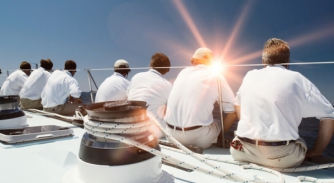
ISWAN begin new research project
Crew will take part in innovative on-board research using wearable and mobile technology to track the impact of social interaction on their well-being
Crew
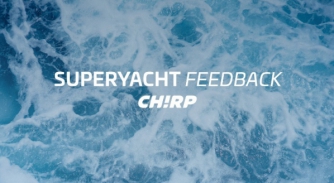
CHIRP Report: Working at height without any PPE
This incident highlights a poor safety culture where senior management does not drive safety
Crew
.jpg)
The Superyacht Report - Captains Focus: Read It Now!
Issue 221: The Superyacht Report - Captains Focus is now available to read and download online
Crew
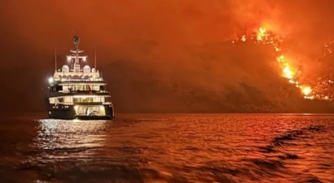
Charter guest denies wrongdoing
A businessman who chartered Persefoni I has denied any involvement in an incident that allegedly caused a severe wildfire in Greece
Crew
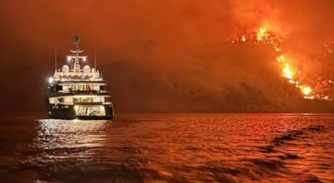
Crew arrested on arson charges in Greece
A superyacht crew will appear in a Greek court on arson charges after allegedly causing a wildfire on the island of Hydra
Fleet
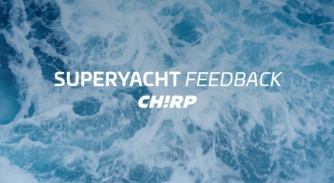
CHIRP Report: Lack of crew in an emergency
This crew’s skilful averting of a grounding demonstrates their competence and good seamanship, but also a severe deficiency of preparedness
Crew
Related news
ISWAN begin new research project
10 months ago
CHIRP Report: Working at height without any PPE
10 months ago
The Superyacht Report - Captains Focus: Read It Now!
10 months ago
Charter guest denies wrongdoing
10 months ago
Crew arrested on arson charges in Greece
10 months ago
CHIRP Report: Lack of crew in an emergency
10 months ago
Navigating the crew recruitment dilemma
10 months ago
NEW: Sign up for
SuperyachtNewsweek!
Get the latest weekly news, in-depth reports, intelligence, and strategic insights, delivered directly from The Superyacht Group's editors and market analysts.
Stay at the forefront of the superyacht industry with SuperyachtNewsweek



